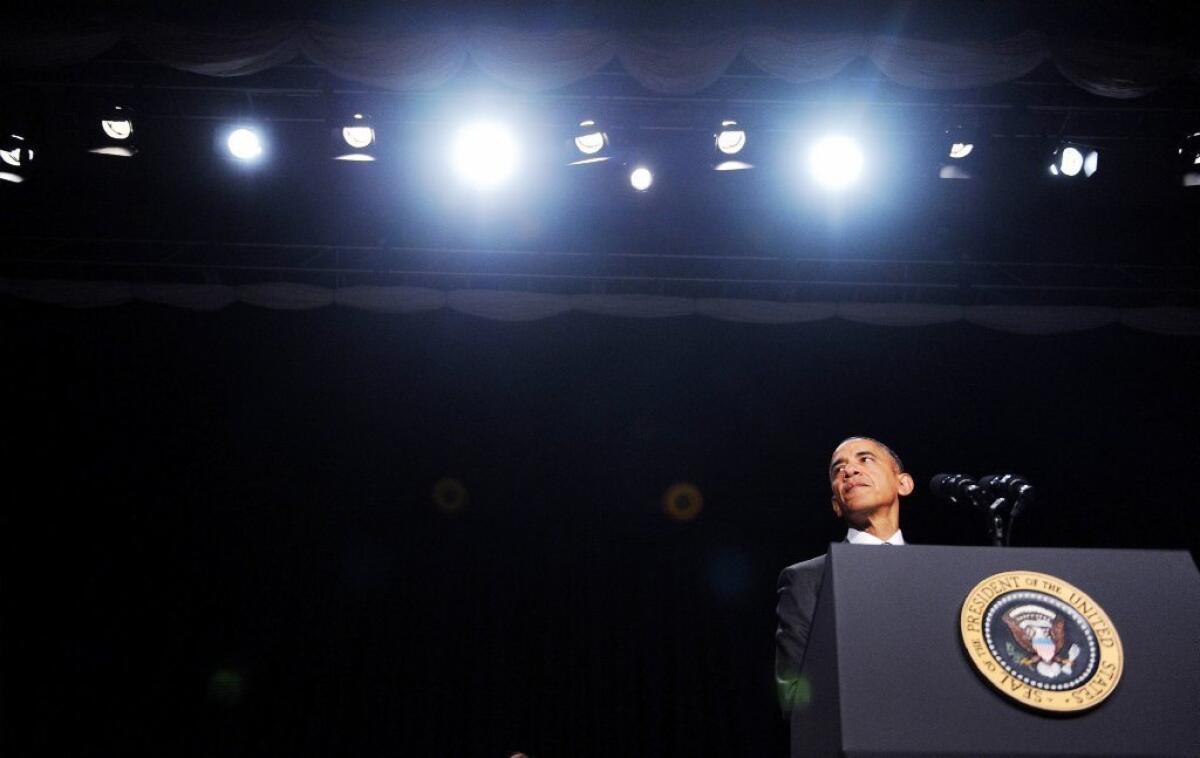Should the U.S. be preaching freedom of religion overseas?

The Universal Declaration of Human Rights adopted by the United Nations in 1948 says, “Everyone has the right to freedom of thought, conscience and religion.” But, like other rights enshrined in that declaration, religious freedom is widely violated around the world. Is that any of the business of the United States? President Obama thinks so, and he’s right.
Before the most receptive audience imaginable — a National Prayer Breakfast — Obama recently insisted that “promoting religious freedom is a key objective of U.S. foreign policy.” And he reiterated U.S. opposition to laws and international resolutions that oppose “blasphemy” and “defamation of religion,” noting correctly that they “all too often can be used to suppress religious minorities.”
Some Americans are uncomfortable with the emphasis the U.S. government places on religious liberty abroad, seeing it as the result of lobbying by Christian groups that are intent on proselytizing in Muslim and other countries. But the importance that Congress and the executive branch attach to religious liberty abroad is much more than a sop to American missionaries or the religious right. For although it is true that Christians are targeted for discrimination or persecution in other countries, so are adherents of other faiths as well as those who profess no faith at all. Moreover, as Obama said at the prayer breakfast, nations that don’t uphold freedom of religion “sow the bitter seeds of instability and violence and extremism.”
But in promoting religious freedom abroad, the United States needs to recognize two realities. The first is that this country’s commitment to religious freedom — and to other core values such as democratization, free speech and equality for women — sometimes will be trumped by other interests. Obama acknowledged as much when he said that “we work with governments that don’t always meet our highest standards, but they’re working with us on core interests such as the security of the American people.”
Second, even when the country is an ally, for geopolitical or other reasons, the United States shouldn’t be silent when it sees religious rights being violated. In his speech, Obama appropriately called on North Korea and Iran to release imprisoned Christian evangelists and referred to the plight of religious minorities in Egypt, Pakistan, China and Syria. But he didn’t mention Saudi Arabia, where, according to the State Department’s report on religious liberty, “freedom of religion is neither recognized nor protected under the law, and the government severely restricted it in practice.”
The United States is right to witness to the importance of freedom of conscience, but it needs to preach that message to friends and enemies alike.
More to Read
A cure for the common opinion
Get thought-provoking perspectives with our weekly newsletter.
You may occasionally receive promotional content from the Los Angeles Times.










